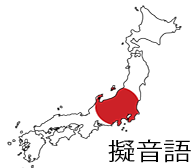Difference between revisions of "Help/How-to-Write-a-Language-Lesson"
| Line 19: | Line 19: | ||
*[https://www.mediawiki.org/wiki/Help:Formatting How to use the wiki code] | *[https://www.mediawiki.org/wiki/Help:Formatting How to use the wiki code] | ||
== | ==How to organize a lesson== | ||
How should you organize your lesson? | |||
To organize your lesson, and for [https://en.wikipedia.org/wiki/Search_engineoptimization SEO (Search engine optimization)], it is good to add title and different levels of headings. | |||
Here is an example of page structure: | Here is an example of page structure: | ||
| Line 69: | Line 49: | ||
*[[Language/Japanese/Vocabulary/Family]] | *[[Language/Japanese/Vocabulary/Family]] | ||
*[[Language/French/Vocabulary/False-Friends]] | *[[Language/French/Vocabulary/False-Friends]] | ||
===Lesson title=== | |||
Do not use Heading1 for your lesson title because this heading is already used automatically for the page title (the page title is the same as the title in the URL) and we can have only have one Heading1 per page (for SEO reasons). | |||
If you want to write a title for your lesson, we suggest you add the following code instead. Use a DIV tab with style attribute: | |||
'''<code><nowiki><div style="font-size:300%;"> TITRE </div></nowiki></code>''' | |||
===Heading level 1=== | |||
For the first level headings, use the following code : | |||
'''<code>==Vocabulary==</code>''' | |||
===Heading level 2=== | |||
For the second level headings, use the following code: | |||
'''<code>===The farm animals===</code>''' | |||
==Tables== | ==Tables== | ||
Revision as of 15:25, 19 February 2019
| Write a lesson: Why? | How? | FAQ |
Here are some tips to help you create a language learning lesson:
The Wiki page editing is done thanks to the MediaWiki Engine, the software used by the famous Wikipedia.
What editor choose?
You have two options:
Visual Editor
If you are new at Wiki page editing, we recommend using the visual editor which is a WYSIWYG editor.
Creating pages is intuitive with the various buttons to format the text.
Wiki Code
If you have a little more experience, we advise you to directly use the Wiki code because you have more formatting options.
How to organize a lesson
How should you organize your lesson?
To organize your lesson, and for SEO (Search engine optimization), it is good to add title and different levels of headings.
Here is an example of page structure:
|
(image)
|
Here are examples of existing lessons to inspire you:
Lesson title
Do not use Heading1 for your lesson title because this heading is already used automatically for the page title (the page title is the same as the title in the URL) and we can have only have one Heading1 per page (for SEO reasons).
If you want to write a title for your lesson, we suggest you add the following code instead. Use a DIV tab with style attribute:
<div style="font-size:300%;"> TITRE </div>
Heading level 1
For the first level headings, use the following code :
==Vocabulary==
Heading level 2
For the second level headings, use the following code:
===The farm animals===
Tables
Here are easy ways to create large tables without having to use the wiki code or the visual editor:
Create a table: Solution1
- Create your table in Excel
- Use this free tool to create the wiki code equivalent to your Excel table
- Edit the wiki page with the "Edit source" tab
- Paste the code
Create a table: Solution2
- Create the table in Excel
- Copy and Paste the table in the page with the Visual Editor mode (do not use the "Edit source" table but use the "Edit" table)
- Save the page
- Edit the page, this time, with the "Edit source" tab
- At the top of the table, add the following code, this will make your table much nicer
Replace the line :
{|
By the line :
{| class="wikitable"
Or by the line :
{| class="wikitable sortable"
if you want to make it sortable
Update a table
- Copy the table from the html page
- Paste in Excel
- Edit your table in Excel
Then update the wiki page, using solution 1 or 2 above
Links
Internal links
To link to a page which URL is wiki/Help inside the Polyglot club wiki, use the following code:
[[Help|different text]]
External links
To link to a page outside Polyglot club wiki.
[https://mediawiki.org MediaWiki]
Images
Example:
[[File:My_pic.png|thumb|none]] Align left
[[File:My_pic.png|thumb]] Align right
[[File:My_pic.png|thumb|My Picture Caption]] with a caption
Videos
To add a Youtube video, simply circle the video ID like this:
<youtube>[ID code]</youtube>
The video [ID code] can be found inside the URL of a Youtube video.
Example:
if the URL is as follows: https://www.youtube.com/watch?v=S4ypgbP2Jn4&app=desktop
The code to copy is S4ypgbP2Jn4 (between v= and &)
After inserting the following code:
<youtube> S4ypgbP2Jn4 </youtube>
the video appears as below:
Lists
Bullet list
*item 1
*item 2
The result is as followed:
- item 1
- item 2
Bullet list 2
*item 1
**item 12
The result is as followed:
- item 1
- item 12
Numbered List
:#item 1
:#item 2
The result is as followed:
- item 1
- item 2
Numbered List 2
#item 1
##item 12
#item 2
##item 22
The result is as followed:
- item 1
- item 12
- item 2
- item 21
| Write a lesson: Why? | How? | FAQ |
